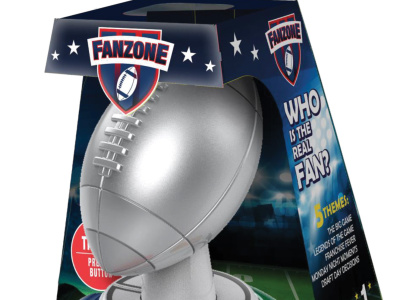Gamus, a card, game, anime and toy distributor based in the southeastern United States, and Talkin' Sports, a card, game, and toy distributor based in the western United States, have merged, effective today. The new entity will operate as Gamus-Talkin' Sports. Gamus had three locations, in Atlanta, Georgia; and Orlando and Fort Lauderdale, Florida. Talkin' Sports had five, in Phoenix, Arizona; Anaheim, Van Nuys, and San Jose, California; and Everett Washington. All eight locations will operate as part of the new combined entity.
The new company, Gamus, LLC, will be a Washington corporation; Steve Snyder, president of GAMUS will be president of the combined operation; Lloyd Kee, former president of Talkin' Sports, will be executive vice president. Snyder will continue to operate from the former Gamus offices in Atlanta; Kee will continue to operate from the former Talkin' Sports offices in San Jose.
The two companies were roughly the same size prior to the merger, Snyder told us in an interview. He would not comment on the percentage shares the owners of the two companies would have in the new entity. The deal has been in the works for over a year.
The greatest benefit of the merger to the new entity, according to Snyder, will be the expansion of product lines that the combined entity will be able to offer its customers, based on the lines each has that the other doesn't. He wouldn't comment on the relative contributions of those increased product lines from the two merging companies, but based on a quick look at the two companies' Websites, it appears that Gamus had a larger games line, including Wizards of the Coast, than Talkin' Sports did, and also carried anime, which Talkin' Sports did not. Talkin' Sports appears to have been deeper into die-cast and some other toy lines than Gamus was.
Although no lay-offs are planned (in fact, the company is soliciting for resumes from games personnel), there will be some cost savings from a combination of credit facilities and better prices on supplies and services from vendors.
'It's a lot easier to expand the business going that route [merger] than to compete for the business, especially in a shrinking market,' Snyder said. The shrinking market to which he referred is the sports card market, which is a small fraction of its size ten to fifteen years ago. The market has continued its fall in recent years; since 2000, Snyder estimated, the number of sports cards hobby stores has declined 15-20%, down to an estimated 2000 stores today.
Although Major League Baseball recently cut the number of its licensees, brands, and licensed trading card products for 2006, the changes are ten to fifteen years too late, from our perspective. An over-proliferation of card brands caused by indiscriminate licensing, consumer confusion, declining aftermarket prices, and a lack of attractive, marketable sports stars have all contributed to the decline, and the changes being made by the licensors are unlikely to dramatically change the market for sports cards any time soon.
Although many sources are reporting a decline in the games market (see 'Game Market Decline Levels Off'), Snyder said that their sales have been consistent. Although sales on Yu Gi Oh, the top brand in the business, are down somewhat, he conceded, he felt that hobby sales were down less than those in mass outlets, and said that other brands, such as Upper Deck's Versus line, were taking up the slack.
In that kind of environment, it makes sense that two companies that began as exclusively distributing sports cards have made efforts to consolidate, cut costs, gain buying power, and rapidly expand their product lines into non-sports categories through this merger.







